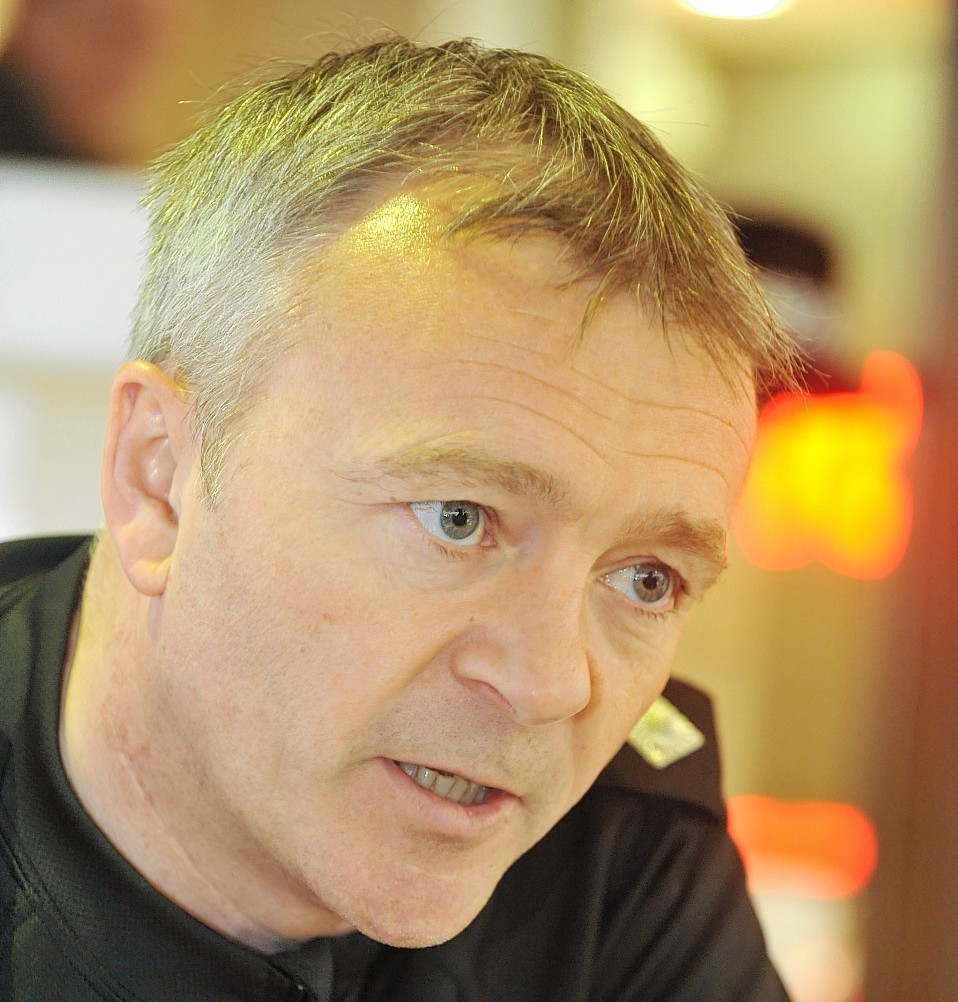When the news broke that Scotland’s eight police forces were to merge into one, it sparked fears that the Highlands and Islands might lose the distinction of being the safest place in Scotland.
However, Chief Superintendent Julian Innes and his team have proved the sceptics wrong, with violence, break-ins, car crimes and thefts at the lowest levels they have ever been.
Statistics show recruitment is flourishing, officers are working more efficiently – and there is even a queue of staff waiting patiently for a chance to relocate to the north.
In many ways, the force is in its healthiest position in recent history – an impressive achievement coming at the end of an 18-month period of adversity and change.
However, Ch Supt Innes and his team are facing increased and intense scrutiny – not least over the issue of police carrying firearms.
A now notorious picture of three armed officers attending a minor bust-up outside McDonalds on Inverness High Street sparked fervent debate among critics who did not understand why the safest part of Scotland needed guns on the streets.
The issue continues to dominate the headlines in the north, with members of the public airing their views at a meeting of the Scottish Police Authority in Inverness last week.
Ch Supt Innes insists his highly-trained team only want what is best for their communities – and will use every resource at their disposal to keep the public safe.
“I still have a firm view that the ability to deploy firearms very quickly is essential,” he said.
“We have had three armed robberies with knives, and I think it’s essential that the victims and the general public know that the police have the opportunity to protect them at their time of need.
“The interesting part about armed response was that we actually implemented that as Northern Constabulary, but nobody really noticed.
“I have people who really want to support the work we’re doing, but who are also good at scrutinising and demanding a better service in every aspect of policing.
“What’s really important is not losing sight of what we’re here to do, which is providing the best possible service we can.”
Ch Supt Innes said he was always in favour of the creation of Police Scotland, and his positive attitude about the future of the force has not changed.
“I saw Police Scotland coming along as quite exciting,” he explains.
“That’s not to say I wasn’t extremely proud of what Northern Constabulary had achieved and I was very loyal to that. But my mind was always open. I’m the sort of person who quite likes change.
“On April 1, 2013, I moved my mind-set to the fact that I was now part of Police Scotland and I’m extremely proud of the fact that I’m part of this new organisation.”
The Highlands and Islands is already taking notes from other beats on how it can improve its performance, he added.
The force has even created its own community safety hub in Inverness, inspired by a successful Aberdeen model in which police officers, council staff, fire service representatives and the NHS are all found under one roof.
“We haven’t just talked about it, we’ve actually done it,” said Ch Supt Innes.
“It’s a tangible example of us picking up good practice elsewhere, and these examples are only just starting.
“There are no boundaries for policing now. The lines on the maps don’t exist in the same way they used to with the eight police forces.
“It’s one of the huge opportunities for Police Scotland.”
Like his neighbouring commander, he had never spoken to the chief superintendents of Aberdeen, Aberdeenshire and Moray before April 1, and did not even know who they were.
Now, his network of support extends throughout the country.
“I have access to colleagues and friends in Scotland who, in terms of professional and peer development, I can lift the phone to whenever I want, which I couldn’t have done before,” he said.
“I think what Police Scotland has been able to do in 18 months is absolutely outstanding.
“We have developed a new culture which doesn’t live in the past, but takes the best of the past and the best of other parts of the country and brings them into one.
“This is now where we go from being a good organisation to being a brilliant one.”
